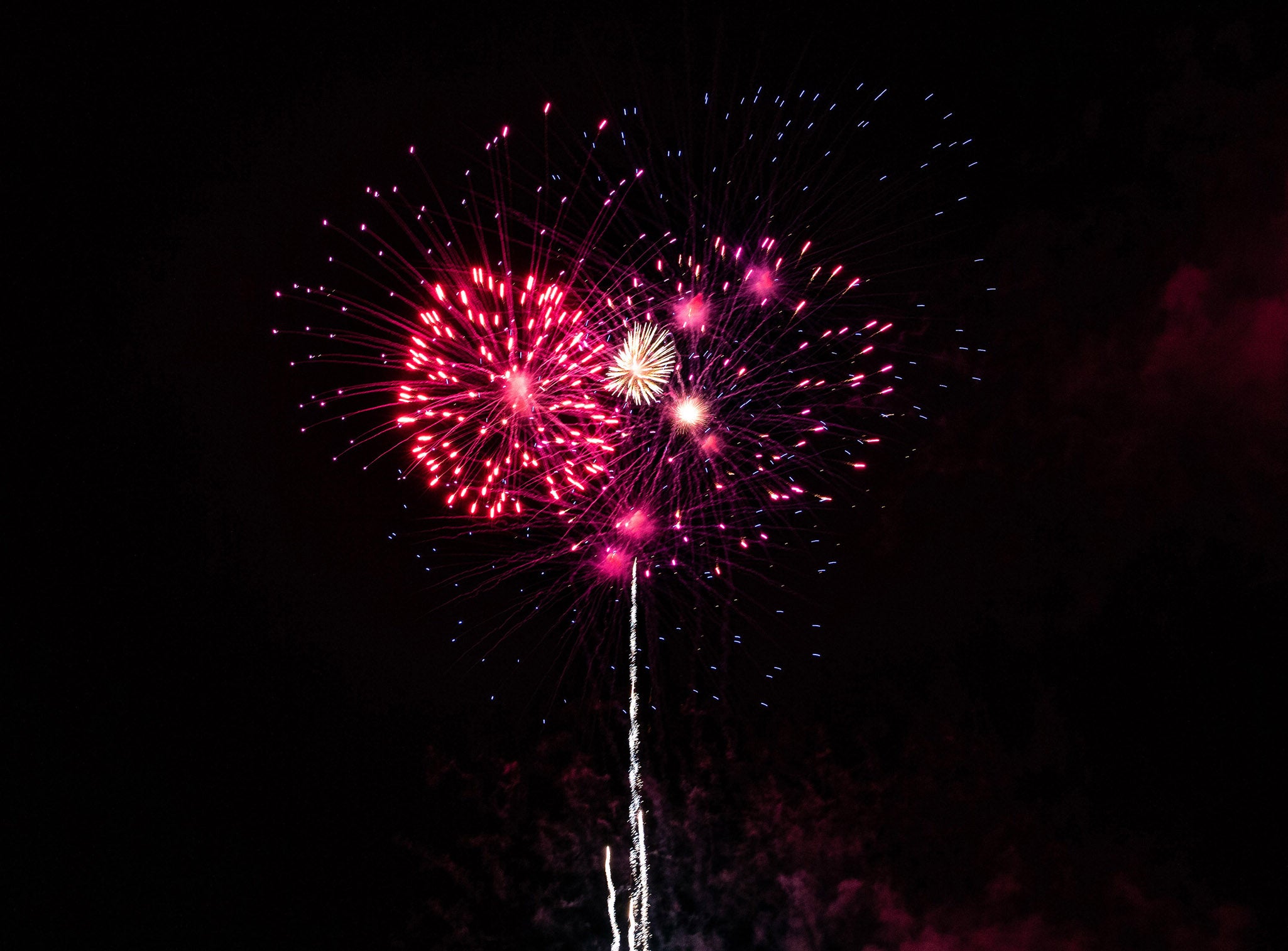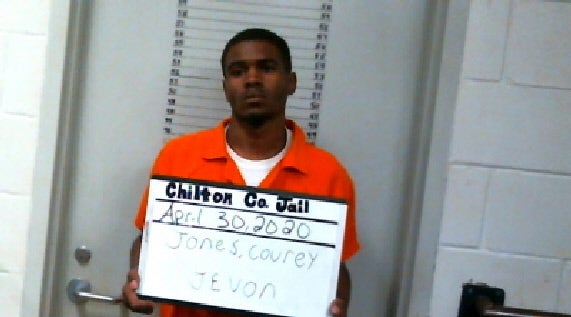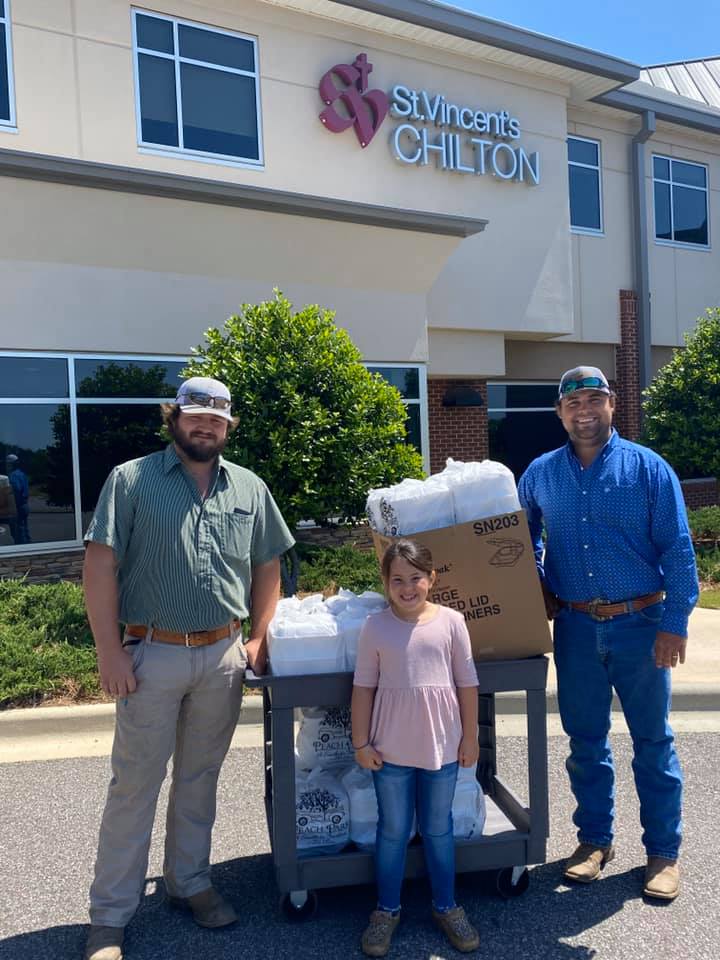Fireworks safety tips for Fourth of July fun
Published 3:32 pm Tuesday, July 2, 2019

- Shooting off fireworks can be fun during the Fourth of July, but some tips should be kept in mind to make sure everyone enjoying the holiday stays safe. (BRANDON SUMRALL/SPECIAL)
|
Getting your Trinity Audio player ready...
|
By J.R. TIDWELL / Editor
The Fourth of July is here once again, meaning many people will be setting off fireworks in celebration of the United States gaining its independence from Great Britain.
While these displays are often fun and patriotic, setting off explosives, even on a small scale, comes with a set of risks.
According to the U.S. Consumer Product Safety Commission, 180 people on average go to the emergency room each day during the month surrounding July 4.
Firecrackers (19%) and reloadable shells (12%) make up the lion’s share of injuries caused by specific types of fireworks.
The CPSC lists the following tips to help keep people safe while shooting off fireworks:
- Never allow young children to play with or ignite fireworks.
- Avoid buying fireworks that are packaged in brown paper because this is often a sign that the fireworks were made for professional displays and that they could pose a danger to consumers.
- Always have an adult supervise fireworks activities. Parents don’t realize that young children suffer injuries from sparklers. Sparklers burn at temperatures of about 2,000 degrees — hot enough to melt some metals.
- Never place any part of your body directly over a fireworks device when lighting the fuse. Back up to a safe distance immediately after lighting fireworks.
- Never try to re-light or pick up fireworks that have not ignited fully.
- Never point or throw fireworks at another person. Keep a bucket of water or a garden hose handy in case of fire or other mishap.
- Light fireworks one at a time, then move back quickly.
- Never carry fireworks in a pocket or shoot them off in metal or glass containers.
- After fireworks complete their burning, douse the spent device with plenty of water from a bucket or hose before discarding it to prevent a trash fire.
- Make sure fireworks are legal in your area before buying or using them.
Shooting off fireworks inside city limits is generally illegal in most municipalities, though some areas make exceptions for holidays like the Fourth of July and New Years.
Checking with local authorities is the best bet when seeking more information on the legality of fireworks in your area.
The Alabama Law Enforcement Agency would like to remind residents that the state has a “zero tolerance” policy on driving under the influence.
“Last year, from 6 p.m. July 1 to 5:59 a.m. July 5, nearly 300 Americans were killed in crashes involving drunk drivers. During that timeframe, drunk driving deaths accounted for 39 percent of all fatalities on U.S. roadways,” said the agency in a release.
Pets, especially dogs, can have a difficult time during holidays involving fireworks.
The American Kennel Club has the following tips to help soothe pets during these times:
- It is safer to keep your pets at home during Fourth of July celebrations instead of bringing him or her to your neighbor’s party. Keep your pets in the house, rather than in your yard. They will be a lot happier indoors, and not tempted to leap over a fence to find you.
- Dogs can be startled by the loud noise of fireworks. Once the festivities begin, keep your pet in a safe room where they can feel comfortable. If he or she is crate trained, put them in the crate covered with a blanket to make them feel secure.
- Block outside sights and sounds by lowering the blinds and turning on the television. Play soothing music in the background to counteract the cacophony during the “rockets’ red glare.”
- If your pet seems overly anxious, spend some time with them speaking soothingly to help them to relax.
- Avoid scraps from the grill. While tempting to our pets, any sudden change to your pets’ diet can cause stomach upset. In addition, some certain foods like onions, avocado, grapes and raisins can be toxic.
- Human products can be dangerous to animals. Avoid spraying your pet with insect repellent and only use special sunscreen that is intended for animal use. Keep your pets away from matches and lighter fluid. They can be extremely irritating to the stomach, lungs and central nervous system, if ingested.
- Should your dog get scared, escape and run away, help find him with microchip identification.






